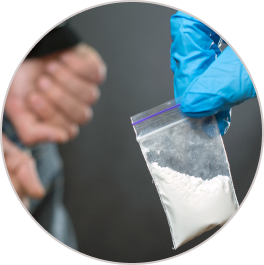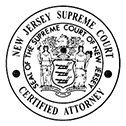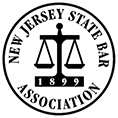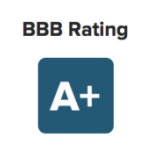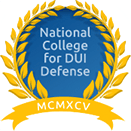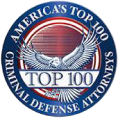Union County, NJ, Drug Lawyer
Have you been accused of or arrested on suspicion of a drug-related crime in Union County, New Jersey? If so, you should contact a local drug defense lawyer immediately. The State of New Jersey imposes harsh penalties for many drug crimes, and the consequences of a conviction could follow you for the rest of your life.
The criminal defense attorneys at the Law Offices of Jonathan F. Marshall have more than 200 years of combined experience defending the rights of people who find themselves in positions like yours. Our team includes several former county and municipal prosecutors, so we have the inside knowledge to develop a strong, persuasive, and comprehensive defense on your behalf. Contact us now for more information in a free case review with a Union County drug crime lawyer.
What Are the New Jersey Drug Possession Laws?
New Jersey Statutes § 2C:35-10 prohibits possessing, using, or being under the influence of certain drugs. Specifically, the law says it is illegal for anyone to knowingly or purposely have actual or constructive possession of an illicit drug or other controlled dangerous substance without a valid prescription. Under New Jersey’s possession laws:
- Unauthorized possession of controlled substances classified as Schedule I, II, III, or IV drugs is a third-degree indictable offense, punishable by three to five years in prison and up to $35,000 in fines.
- Unauthorized possession of Schedule V controlled substances is a fourth-degree indictable offense, punishable by up to 18 months in prison and $15,000 in fines.
- Since 2021, the unauthorized possession of more than 6 ounces of marijuana or more than 17 grams of hashish is a fourth-degree indictable offense, punishable by up to 18 months in prison and $25,000 in fines.
- Since 2021, the unauthorized possession of 6 ounces or less of marijuana or 17 grams or less of hashish is no longer a crime, whereas it was previously considered a disorderly persons offense.
- Possession of 1 ounce or less of psilocybin is a disorderly persons offense.
- Any person convicted of unlawful possession of a controlled dangerous substance while on or within 1,000 feet of any school property must perform at least 100 hours of community service in addition to any other penalties.
- It is not necessary for state prosecutors to prove that someone used or was under the influence of a controlled substance to convict them of unlawful possession. However, proof that someone was using or under the influence of a prohibited substance is sufficient for a conviction.
- The smell of marijuana or hashish, whether fresh or burnt, does not constitute probable cause to conduct a search and seizure of a person suspected of possession.
Under New Jersey Statutes § 2C:36-2, it is also unlawful to use or possess, with the intent to use, drug paraphernalia. Drug paraphernalia includes any items used to produce, grow, manufacture, conceal, contain, prepare, test, store, or ingest drugs.
What Are the New Jersey Drug Distribution Laws?
New Jersey Statutes § 2C:35-5 prohibits the unauthorized manufacturing, distributing, and dispensing of controlled dangerous substances. The section also prohibits possession with the intent to distribute controlled dangerous substances. Here’s how New Jersey handles unlawful drug distribution offenses under this law:
- Unauthorized distribution of 5 ounces or more of heroin, cocaine, cocaine derivatives, or MDMA is a first-degree indictable offense, punishable by 10 to 20 years in jail and up to $500,000 in fines.
- Unauthorized distribution of a half-ounce or more but less than 5 ounces of any of the above substances is a second-degree indictable offense, punishable by five to 10 years in jail. Unauthorized distribution of less than a half-ounce of any of the above substances is a third-degree indictable offense, punishable by three to five years in jail and up to $75,000 in fines.
- Unauthorized distribution of Schedule I and II drugs not mentioned in this section is a second-degree indictable offense when the quantity is 1 ounce or more and a third-degree crime when the quantity is less than 1 ounce.
- Unauthorized distribution of 100 milligrams or more of LSD or 10 grams or more of PCP is a first-degree indictable offense. Unauthorized distribution of less than 100 milligrams of LSD or less than 10 grams of PCP is a second-degree crime.
- Unauthorized distribution of 5 ounces or more of methamphetamine or P2P is a first-degree crime. Distribution involving a half-ounce or more but less than 5 ounces is a second-degree crime, and distribution involving less than a half-ounce is a third-degree crime.
- Unauthorized distribution of 25 pounds or more of marijuana, 50 or more marijuana plants, or 5 pounds or more of hashish is a first-degree crime. Distribution of 5 to 25 pounds of marijuana, 10 to 49 marijuana plants, or 1 to 5 pounds of hashish is a second-degree crime. Distribution of more than 1 ounce but less than 5 pounds of marijuana, or more than 5 grams but less than 1 pound of hashish, is a third-degree crime. First-time offenders who distribute less than 1 ounce of marijuana or less than 5 grams of hashish are subject to written warnings, and repeat offenses are fourth-degree crimes.
Where Are Drug Offense Cases Heard in Union County, NJ?
If you face drug charges in Union County, NJ, the court responsible for hearing your case will vary depending on the nature of your alleged offense. New Jersey prosecutes many drug offenses as indictable offenses, which are tried at the Union County Superior Court in Elizabeth, NJ.
If you are facing charges for a drug crime that counts as a disorderly persons offense, your case will go to one of the following municipal courts in Union County:
How Are Drug Offenses Handled in New Jersey?
New Jersey’s criminal justice system takes drug-related crimes very seriously, and being convicted of a drug crime could result in severe penalties, such as steep fines, probation, and even prison time. The maximum criminal penalties that usually apply to drug crime convictions in New Jersey include:
- Petty disorderly Persons Offenses – Up to $500 in fines and 30 days in jail
- Disorderly Persons Offenses – Up to $1,000 in fines and six months in jail
- Fourth-Degree Crimes – Up to $10,000 in fines and 18 months in jail
- Third-Degree Crimes – Up to $15,000 in fines and three to five years in jail
- Second-Degree Crimes – Up to $150,000 in fines and five to 10 years in jail
- First-Degree Crimes – Up to $200,000 in fines and 10 to 20 years in jail
How Are Federal Drug Charges Different from New Jersey Drug Charges?
Every drug offense in New Jersey is also a crime at the federal level, and federal penalties for drug crimes are significantly harsher than state penalties. Most drug crime cases in New Jersey begin with the local police, but some also become federal cases when one or more of the following conditions apply:
- The unlawful drug-related activity occurs on federal property, such as possession or distribution at a national park or military base.
- The drug crime occurs across state lines, such as traveling from one state to another while in unauthorized possession of illicit substances.
- The drug crime is part of a larger drug trafficking or smuggling operation that federal authorities are investigating.
- The drug crime involves especially large quantities of drugs, lots of money, many participants, or the manufacture or trafficking of drugs.
- The drug crime occurred in conjunction with another federal crime, such as money laundering.
If you are facing federal charges for a drug crime in New Jersey, you should contact a Union County drug crime or drug possession attorney immediately. Penalties for federal drug crime convictions include severe mandatory minimum sentencing guidelines, so a strong defense is essential.
What Can a Union County Drug Lawyer Do for Your Case?
When you come to the Law Offices of Jonathan F. Marshall for help after a drug crime arrest or accusation, you can count on us to help you by:
- Explaining the specifics of the charges against you, what to expect from the legal process, and the possible outcomes you could face upon conviction.
- Conducting an independent investigation into your case to identify compelling evidence, interview reliable witnesses, and work with qualified experts.
- Examining the evidence against you to determine how the prosecution intends to handle your case and ensure law enforcement obtained all evidence properly.
- Working with the prosecutor to negotiate plea bargains or have the charges against you reduced or dismissed entirely.
- Representing you during hearings and recommending alternative penalties to fines or jail time, such as supervised probation or drug treatment programs.
Contact a Union County Drug Offense Attorney Today
If you are facing drug-related charges in Union County, The Law Offices of Jonathan F. Marshall is here to help. Our Union County office is conveniently located near the Elizabeth Municipal Court and Union County Superior Court. You can also call us or contact us online to get started with your free, confidential consultation session.

